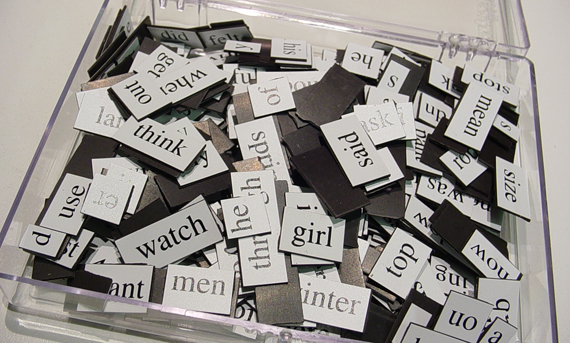
Ernest Hemingway, minimalist, good at writing. The first thing everyone will know in a skill are the basic principles and exercises which will be the foundation for the more advanced levels. Take for example the masters in martial arts, every day they practice their basic footwork, basic kicks and punches, everything basic. Why? Because mastering the fundamentals of a skill is the correct path into becoming awesome! Master the basics of writing a sentence and you’re on your way to becoming a superstar.
“Eschew obfuscation, espouse elucidation,” meaning “avoid being unclear, support being clear” as written in Wikipedia. But no matter how much you want to be clear on the things you write there will come a time when you simply can’t be clear. Why? Read on.
Problems
You know you can’t write the Hemingway style if you are experiencing the following:
1. Nothing to say

Image by: Penny Mathews
Without anything to say writing becomes slower and harder. You are forced to blabber around for the sake of producing something. Sometimes even becoming redundant. But redundancy has its good effects too, Ernest Hemingway uses it with some of his short stories and they add color to the whole story.
Now, my dear readers, the above paragraph is an effect of having “nothing to say” for this item. Notice that the fourth sentence has nothing to do with “nothing to say”. Do not imitate this very bad example. *laughs*
2. Unable to express
When trying to explain something complicated people tend to use complicated terms for the sake of expressing it. No matter how great your vocabulary is, if your readers can’t connect with the things you say you’re not effective, they will leave.
Not being able to express a thought in a word or two results to a convoluted difficulty in understanding.
3. Word count, so important

Image by: Brenton Nicholls
Writers who are paid per words written will not benefit from this article mainly because this article’s conception is to minimize the use of words as much as possible to attain the highest quality possible through minimalism. However, there is a way. If your quota is 1000 words, write 1500 and eliminate 500.
If you are used to using many qualifying words, flowery adjectives, and would want to reduce that for better quality then this article is for you.
Solutions
How to write a simple, exact, and great article the Hemingway style.
1. Use Simple Sentences

Image by: Dani Simmonds
You are writing either because you want to explain something or tell a story. The best way for people to understand what you write is to avoid using complicated sentences. The shorter the better. Use words that won’t make the reader reach for a dictionary.
Contrary to my writing tips number 2 “if there’s a word for it, use it” and tip 5 “strong words, strong memory” do not use strong and exact words if these words are hard to understand. You know, ninja-level words.
If you have seen any of Discovery Science’s shows you will never feel “left behind” even if the topic is about hyperspace and wormholes (…what?) you will understand everything that the narrator and scientists say without having to grab a dictionary. Why? Because they are well-versed in using simple sentences to convey even the most complicated topic. If the topic they are dealing with is far complex than yours, does it not make sense if your sentences are easier to simplify?
Have you read Wuthering Heights? I did and I experienced brain hemorrhage, took me quite some time to love it. The book.
2. Be Positive

Image by: Jonathan Natiuk
Instead of saying “it is hard to walk into Mordor” say “one does not simply walk into Mordor”. The word “simply” gave a lighter feeling in the sentence. No wonder Tolkien made it that way.
Instead of saying “beware of dogs” say “not safe, dogs bite”. The word beware gives everyone chills.
Now why is it important to write positive? Writing in a positive tone does not mean eliminating the use of negative words, it means making the tone lighter. This works when writing instructional articles. The lighter the tone is, the better the readers grasp the ideas presented.
3. Do not be afraid to omit things

Image by: Zsuzsanna Kilian
There are things that require no explanation, just like when I said “use words that won’t make the reader reach for a dictionary”, most of you automatically know why even if I did not explain the reason behind it. That is the beauty of simplicity. You can tell people without actually telling them. How? Below:
- Use negative words (as opposed to tip 2) to express a positive idea like “suffocating colors” denotes “please change the dark colors to lighter ones, I don’t like it.” Nobody wants anything that is suffocating, saying the word expresses dislike.
- Figures of speech to explain complicated stuffs, eliminating technicalities. Analogy is a good example.
- Sometimes you’ll just have to give hints and let the readers form the connection, also saves you the trouble of explaining things when you can’t be so direct to the point to avoid over-explaining things. An example is “early to bed and early to rise, makes a man healthy, wealthy, and wise.”
4. “Write drunk; edit sober.”

Write drunk; edit sober? Just don’t take it literally, you can write great without being drunk, yet.
Write everything related to your topic and leave it for a while, edit later. This is important because you are then giving yourself time to think. This is usually what I do before submitting my articles. After a day of not seeing my article I’ll begin re-reading it and find things that are not supposed to be there, things missing, modifying, and the likes.
5. Integrate with your style
You already have your own style of writing and I’m not suggesting that you abandon it, instead you should integrate it with these tips as you see fit. These tips should be applied when deemed necessary, depending on the audience. For instructions and tips like this article it is best to write simple. But I’m not saying that I have written this thing well, in fact I’m still on the process of making my writing “simple” with a personal touch.
Reasons to write simple
As writers of the online community we only have one goal and that is to give people what we know, to give back and let the process continue. Gone were the days when precious information was kept from the public, when textbooks were only for the high class. Many would agree with me when I say that those written information are still subject to many interpretation and decryption simply because no one understands! Those were the days when the worth of an author lies with how complicated the sentence’s structure is and on deep vocabulary. If we want to inform we need be clear in everything we want to say in order for us to be not subject to misinterpretation.
- To avoid misunderstanding
- To make information easy to recall
- Because you write to inform, not riddle people
Have you ever experienced in your school days when you have something to read for a homework or project but in the most ill of luck you can’t understand a single thing from the encyclopedia? Not fun, right?

Tidak ada komentar:
Posting Komentar